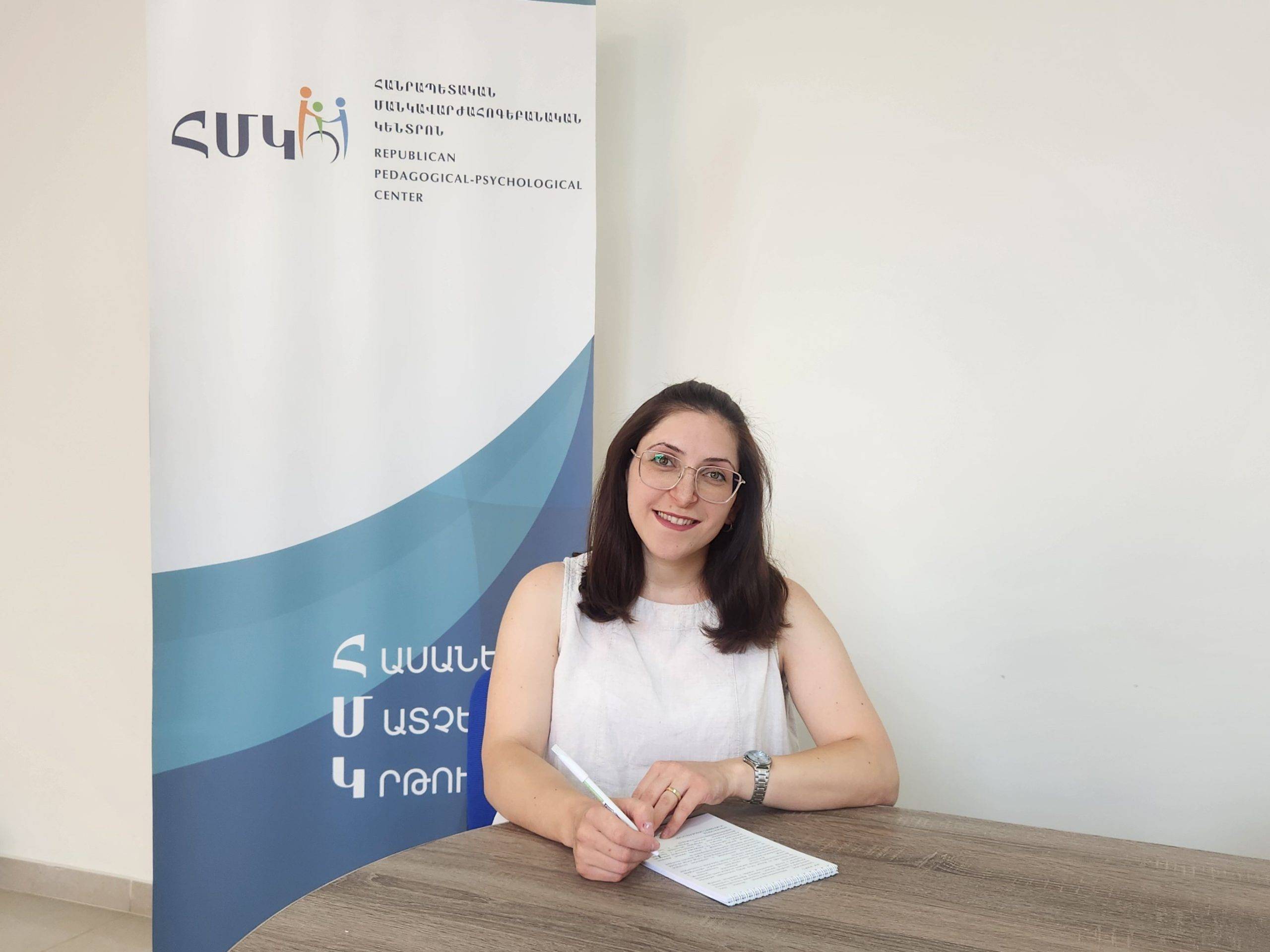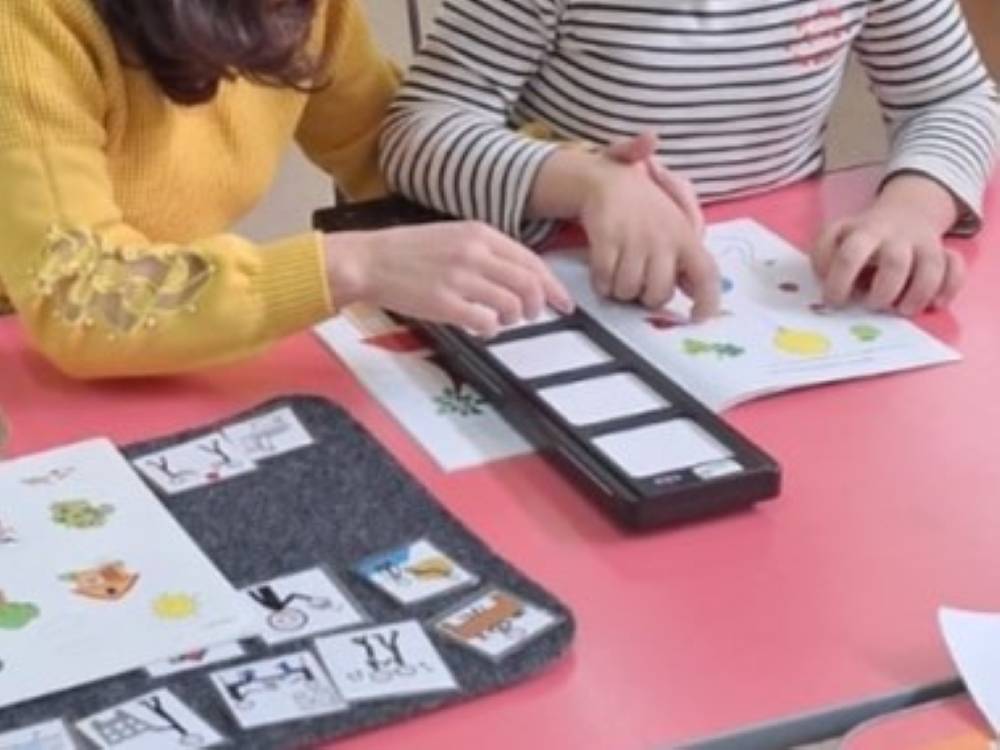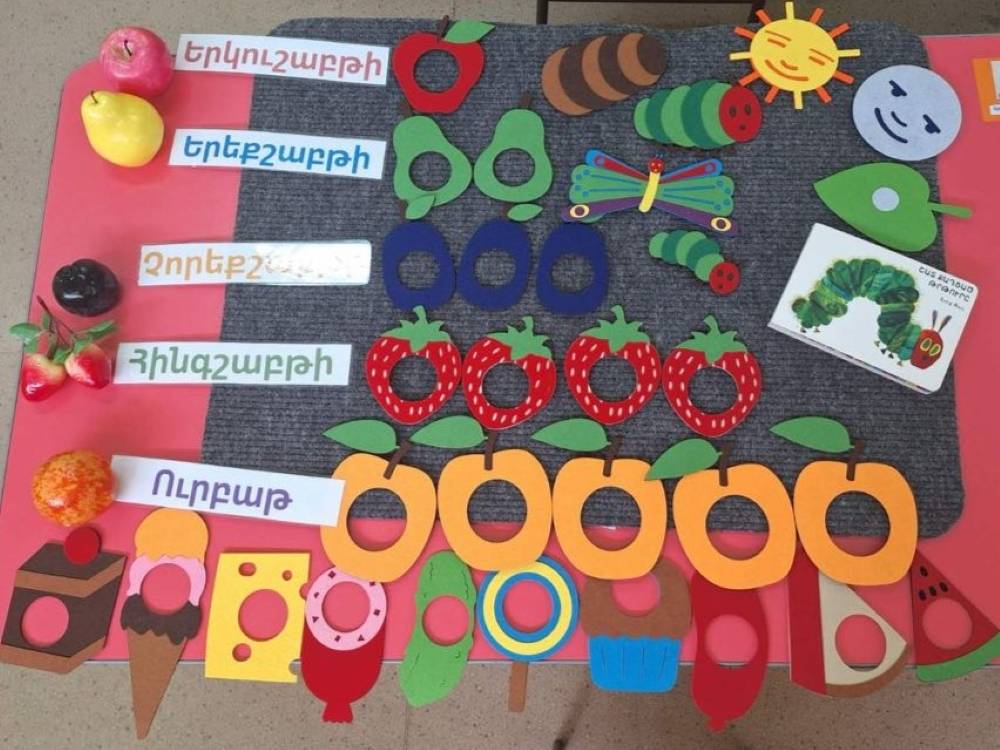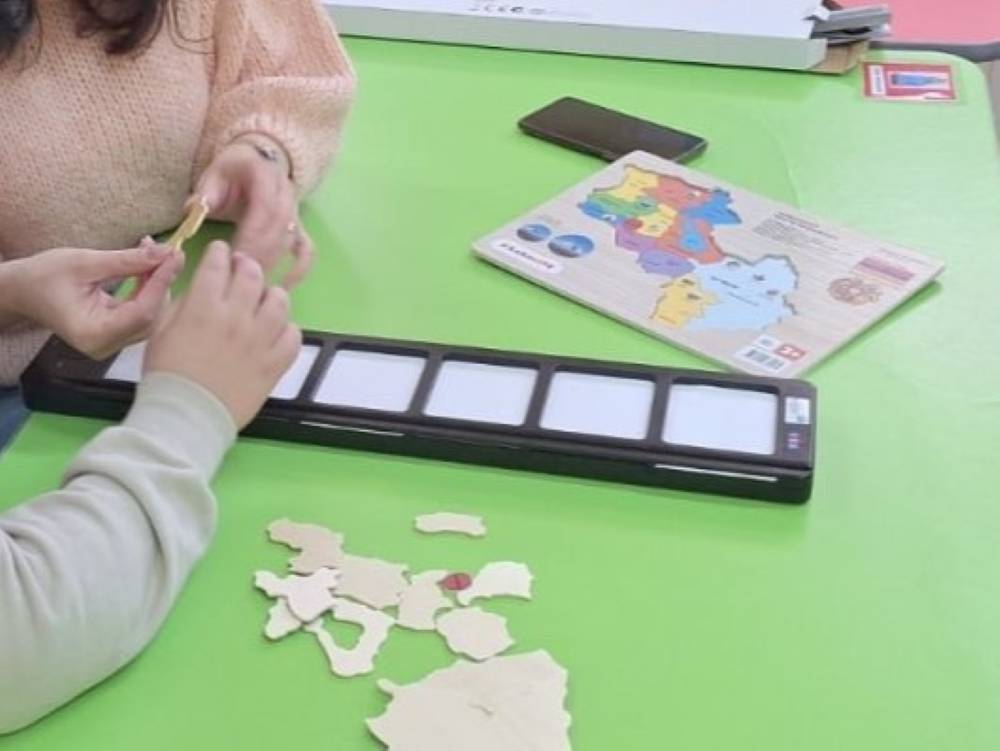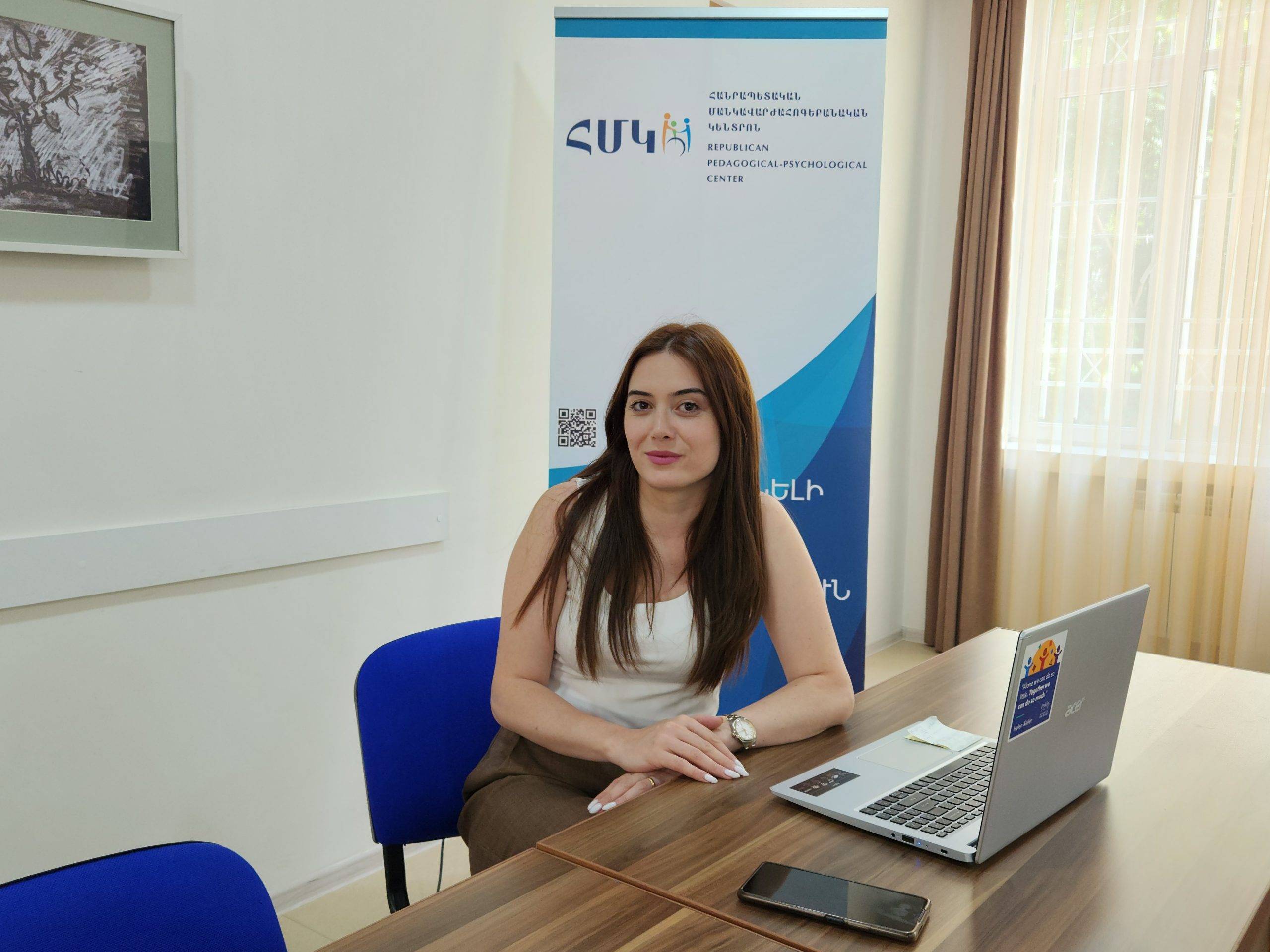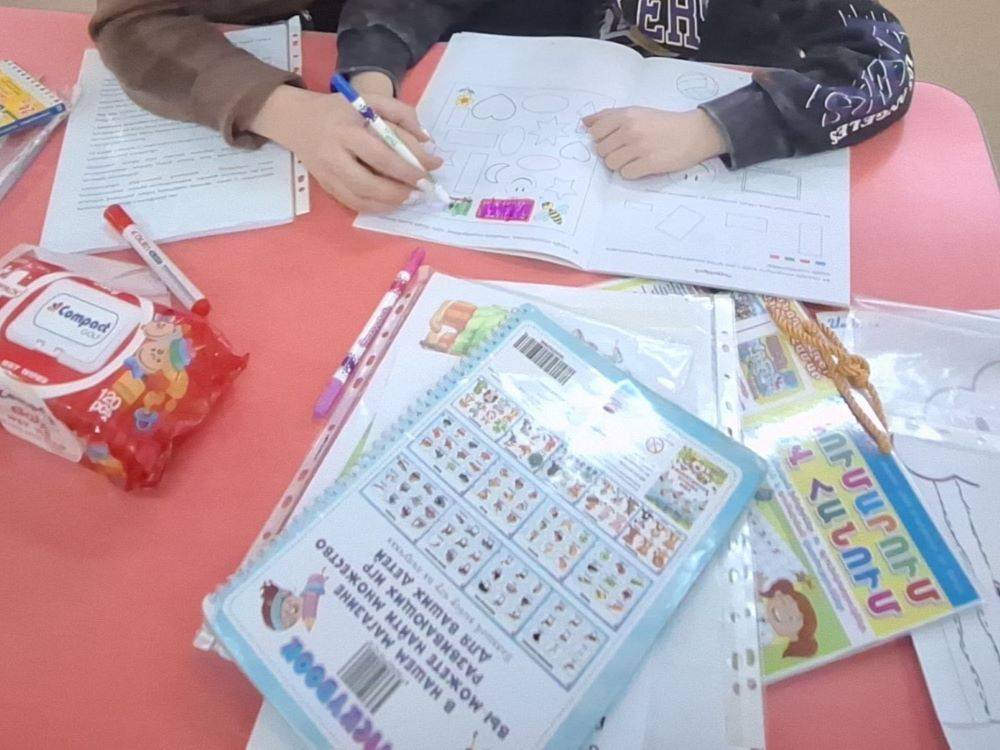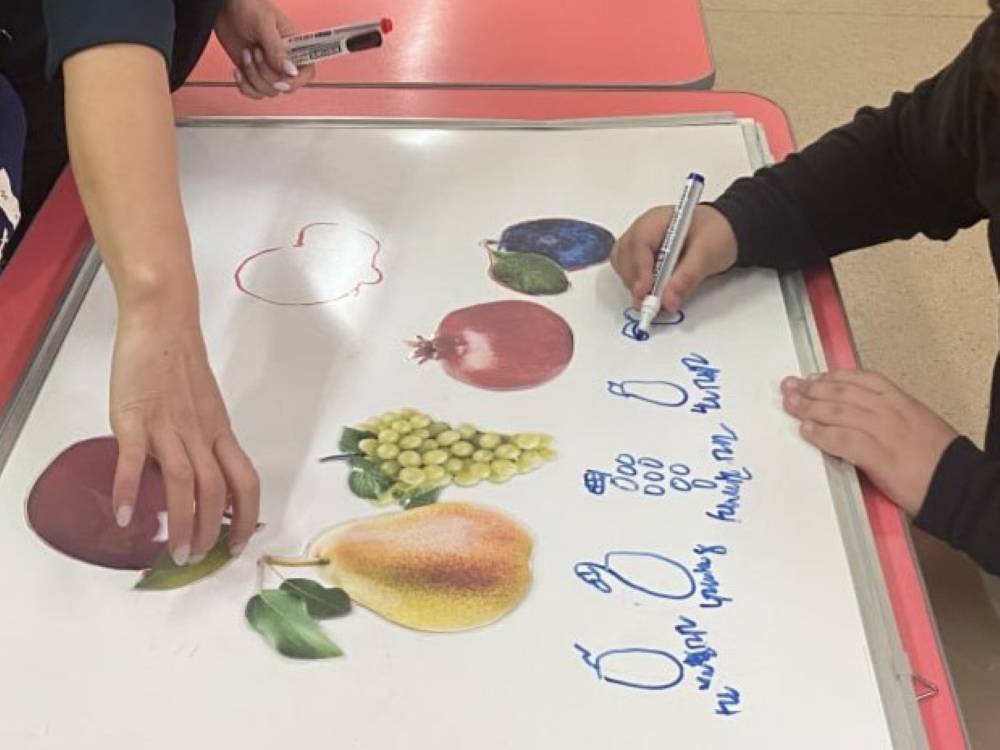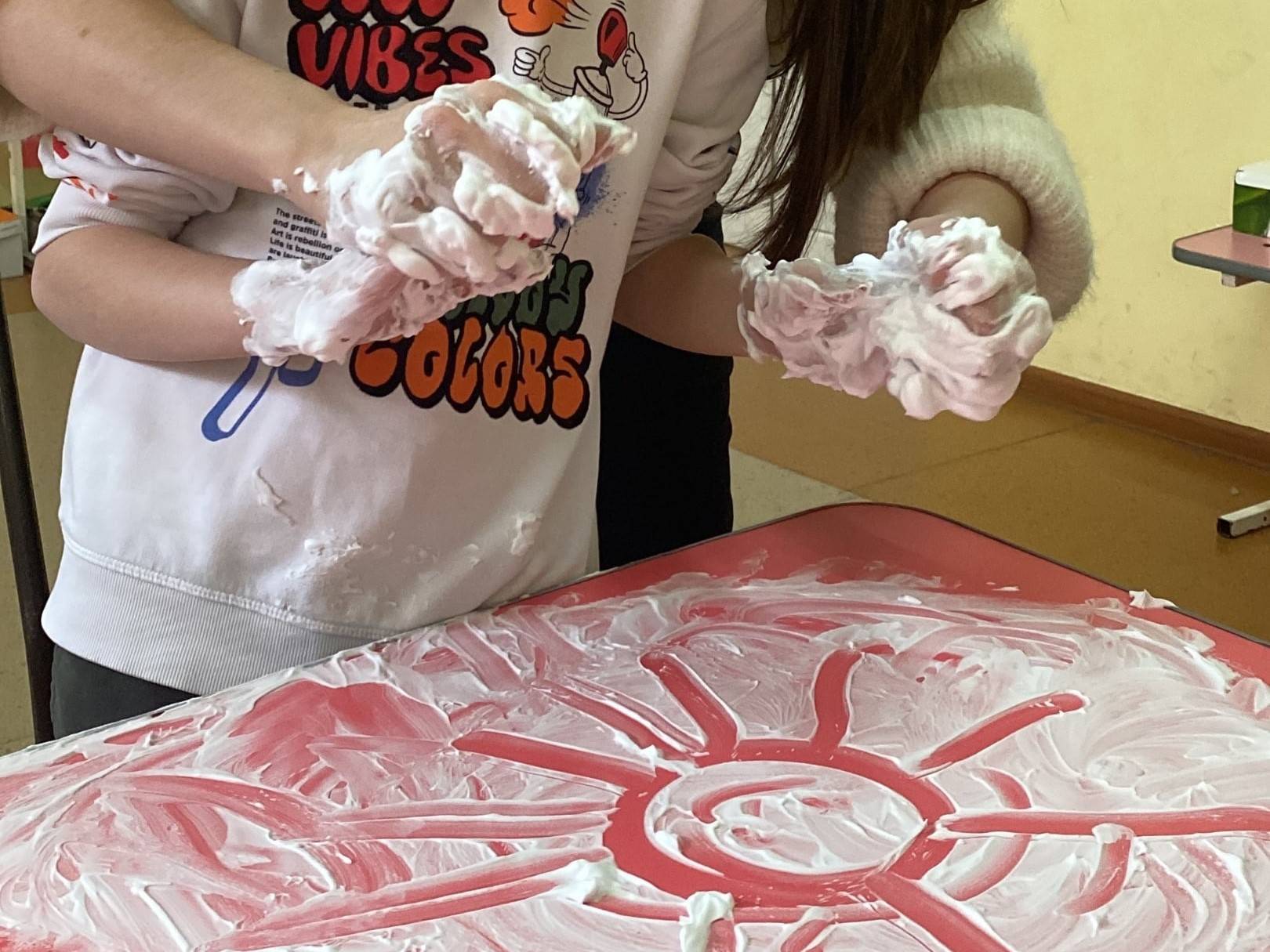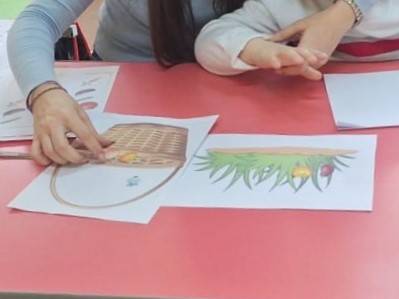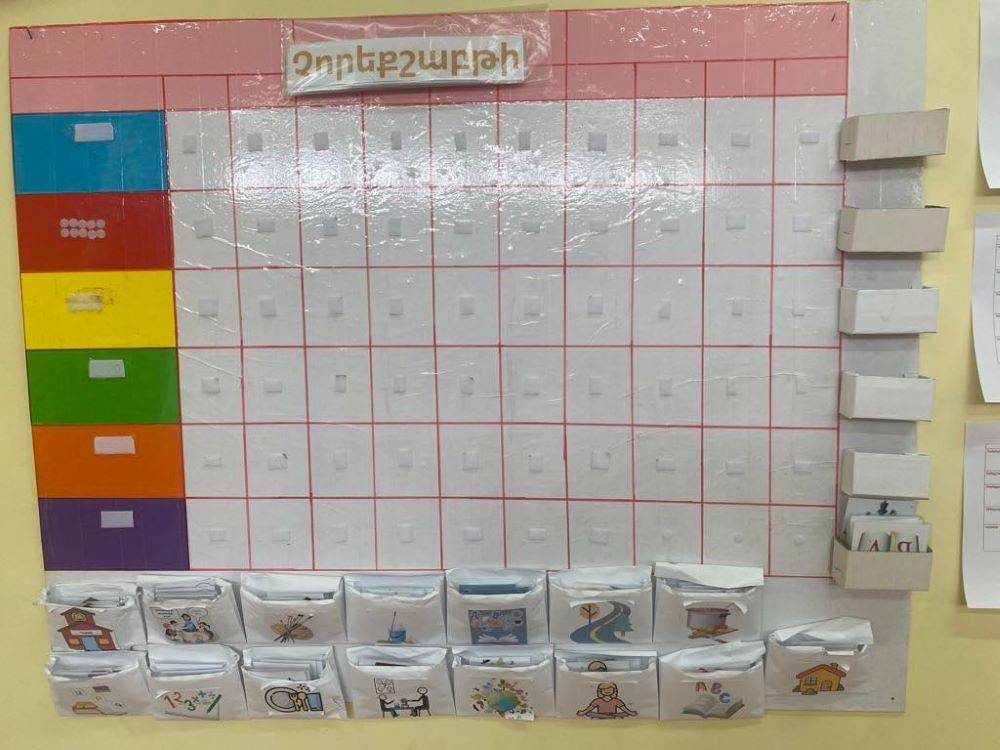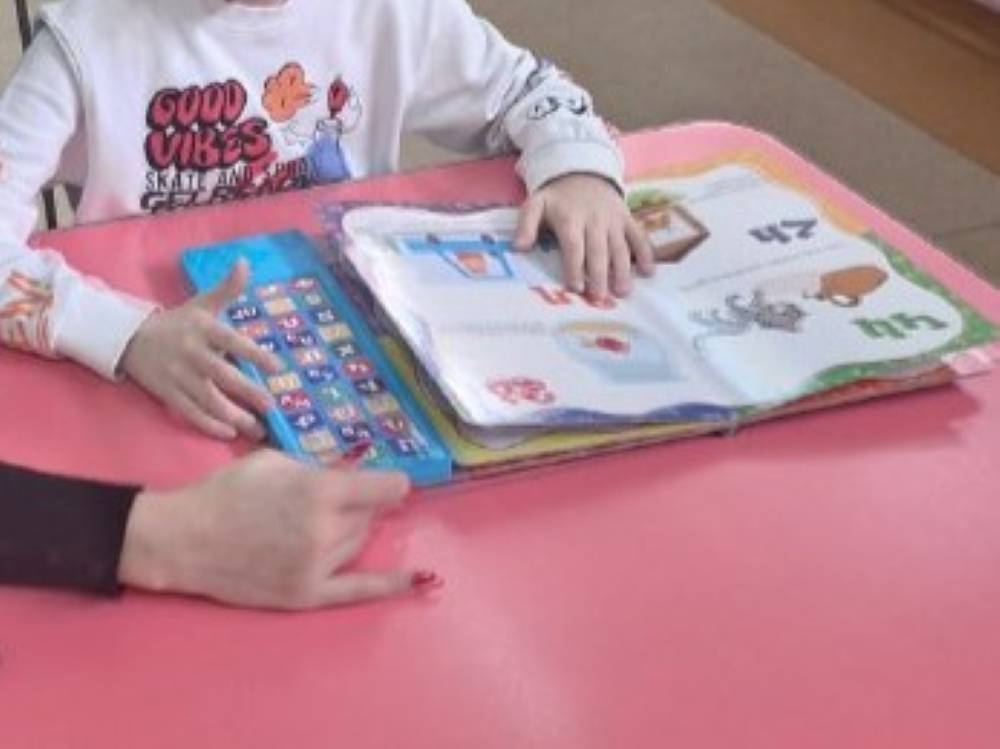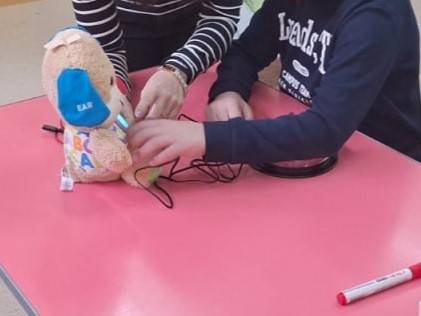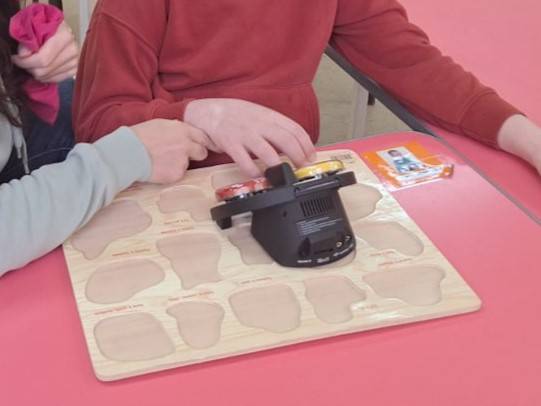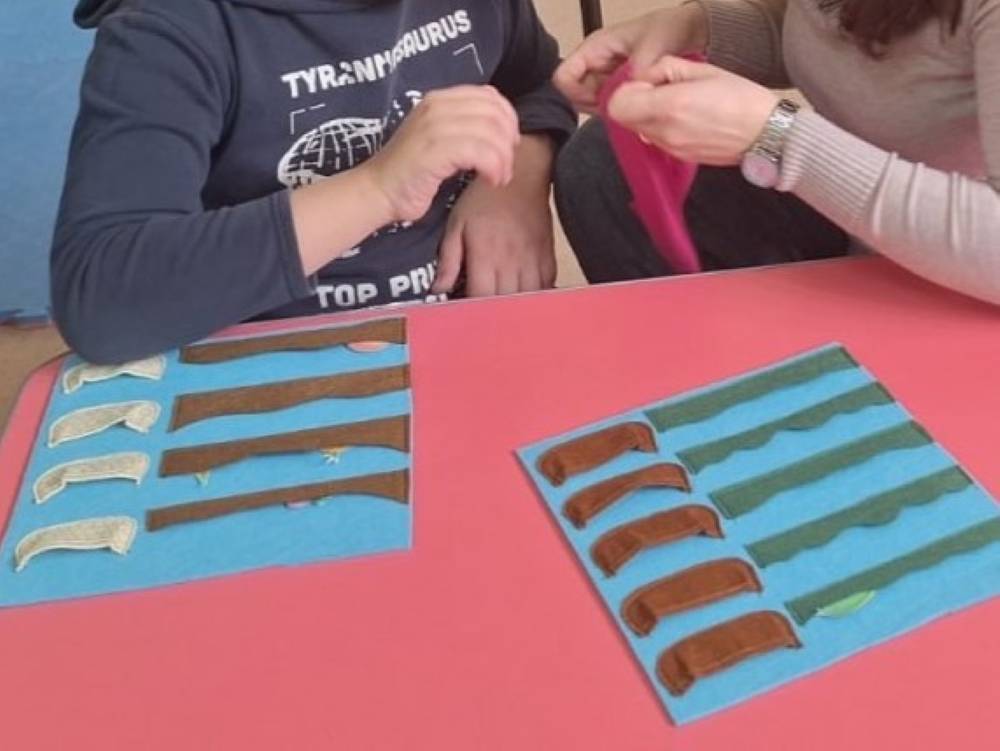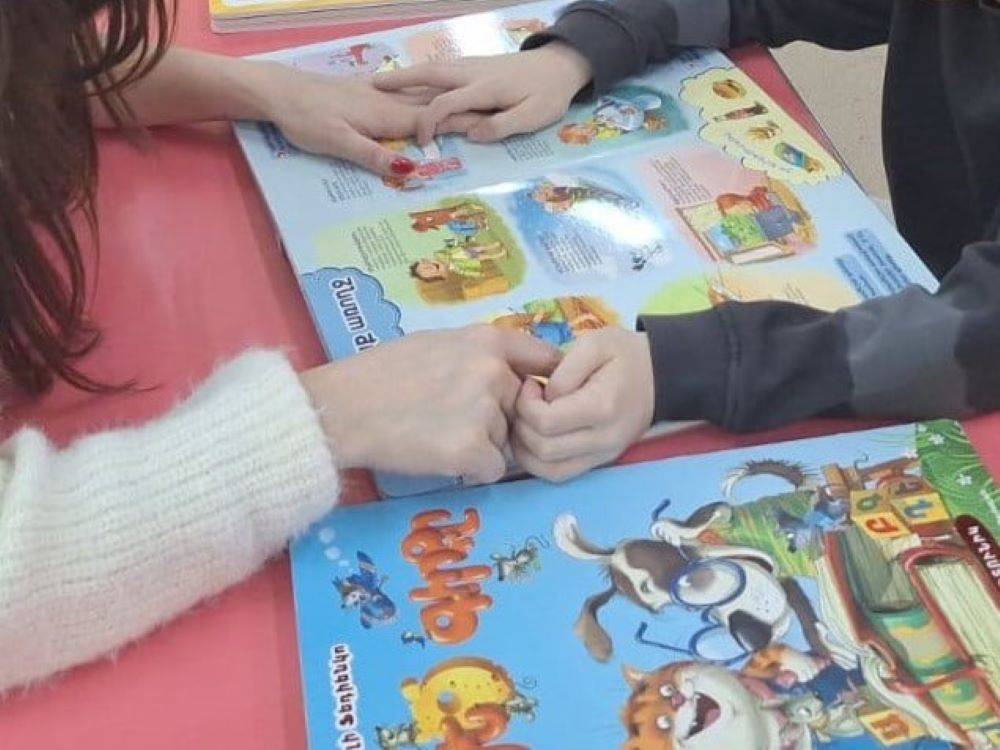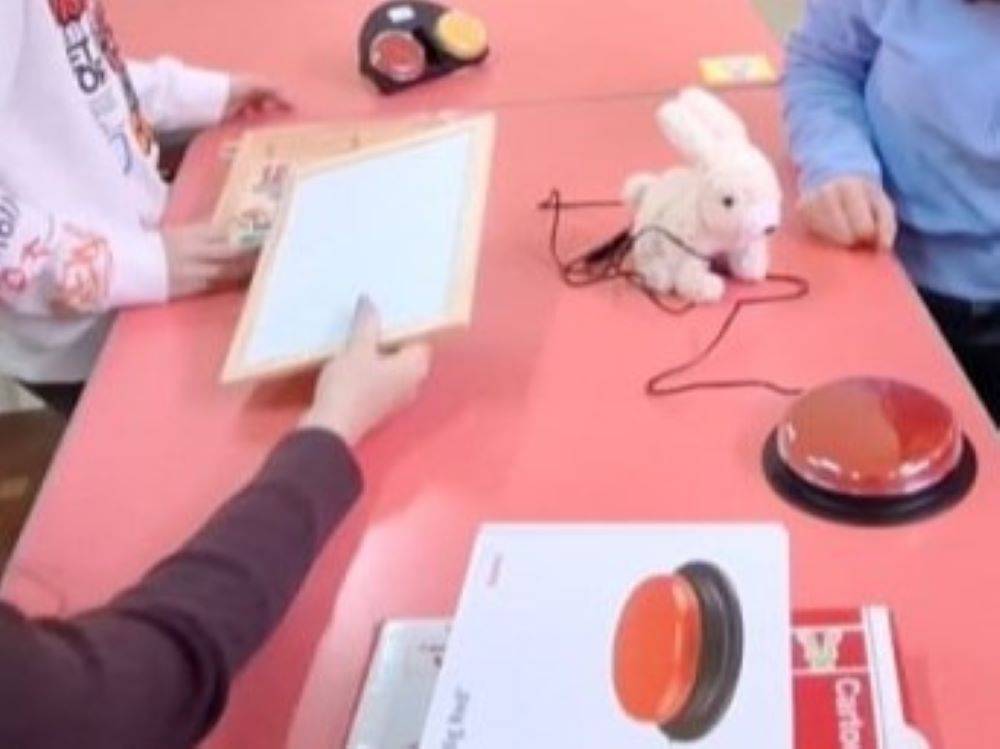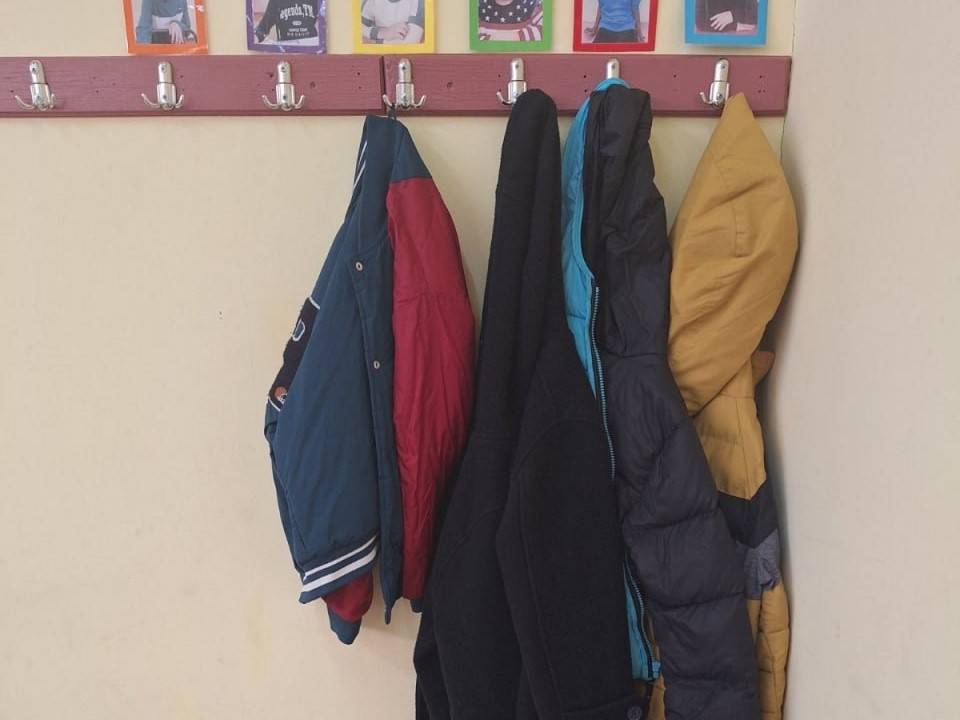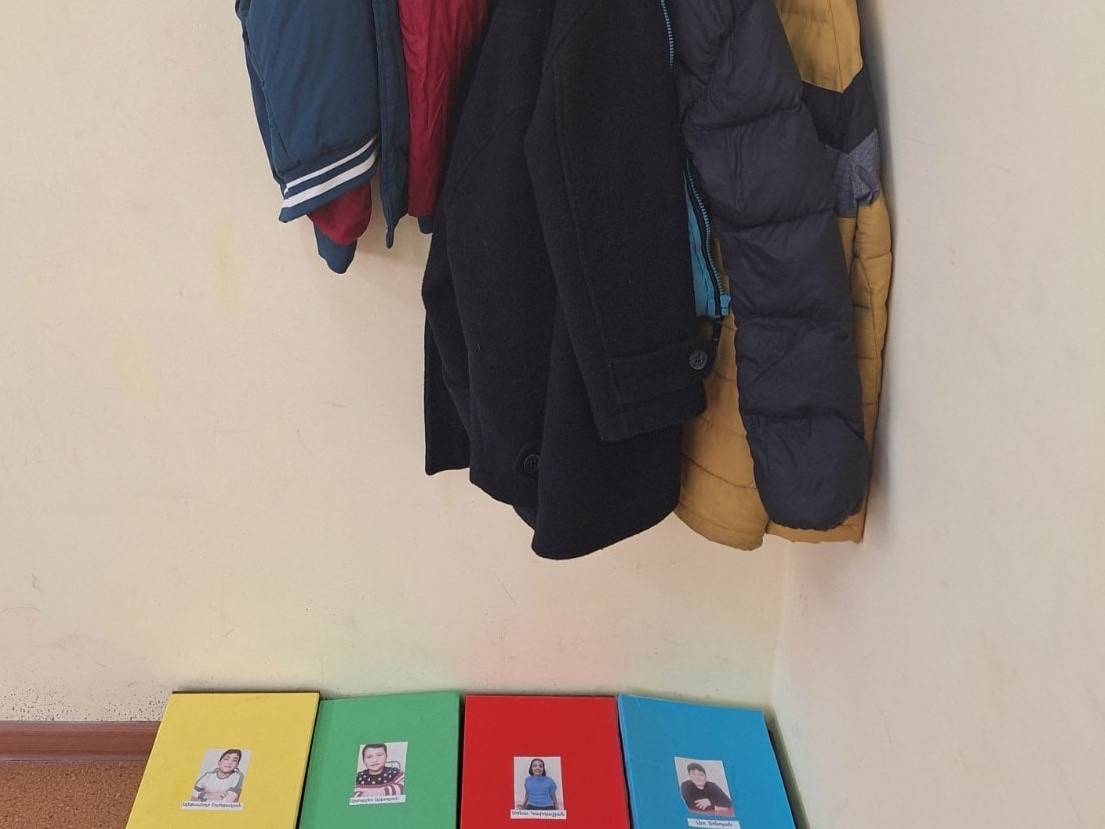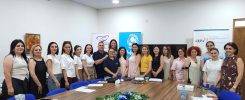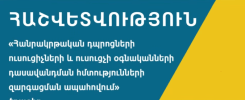SMALL STEPS TO SUCCESS
(Child’s name has been changed)
The hero of our story is Aren — a smiling, bright, and active boy. He is 8 years old and attends the 2nd grade of a general education school.
In early childhood, parents were delighted with Aren’s every step. However, over the years, certain concerns emerged regarding his delayed speech. The parents took Aren for an assessment. “Your child has autism,” was the diagnosis that did not convince them. Before entering school, a new assessment clarified that he required 3rd-level pedagogical-psychological support due to speech and language, communication, and intellectual (mental) difficulties. The news was confusing and frightening for the parents. At first, they tried to ‘deny’ the diagnosis and looked for other ‘solutions.’ However, later they accepted the issue and began taking the child to special sessions, and then Aren started attending school. He did not sit through all the lessons: he could only attend 2-3 classes, and even then, only with the help of a care assistant. Often, the assignments were difficult and unclear for him. Communication was also a challenge: although Aren loved interacting with people, he did not know how to do it. Behavioral issues also appeared: stubbornness, aggression; he bit his hands, pulled and pushed people around him, uttered monotonous vocalizations. The parents were very worried. They no longer knew how to help Aren.
And so, with the consent of his parents, Aren was included in the “Resource Room” Pilot Program, implemented in cooperation with the Republican Pedagogical-Psychological Center, UNICEF, and the Perkins School for the Blind, which is aimed at ensuring high-quality and accessible education for students with special educational needs in general educational institutions of the Republic of Armenia, in an educational environment appropriate to their needs, including those receiving home-based education, who have special educational needs because of communication and mental (intellectual) disabilities and require 3rd or 4th degree support from pedagogical-psychological services.
In September 2024, when Aren arrived at school with his care assistant, instead of joining his regular class, he was directed to the “Resource Room.” The care assistant opened the door, and Aren entered a room very different from the ones where he used to study. It was very spacious, colorful, and bright, with shelves filled with neatly arranged colorful toys. Aren did not understand what was happening. Having a diagnosis of “autism,” he began to show uncontrollable behavior: pulling, hitting, biting his hands, and expressing his dissatisfaction with monotonous vocalizations and in every other means available to him. When the care assistant said goodbye and left the room, everything from the shelves ended up scattered on the floor in just a few seconds, and the beautiful and tidy room turned into a mess. But Aren could not understand why no one was stopping or forbidding him; after all, there were specialists in the room too. Yet, the specialists silently observed the child, trying to get to know him.
The specialist who would be working with Aren was Shushanik Dumikyan, RPPC Training Specialist and a Teacher of the Deaf. And this was not the specialist’s first meeting with him.
Shushanik Dumikyan shares her story:
“After the first meeting with Aren, there was a genuine concern about what methods we could use to bring him into our environment and regulate his behavior. From the very beginning, we did not rule out the possibility of not succeeding.
At first, Aren did not try to interact with his friends. Since he did not communicate verbally, we began to look for alternative ways to communicate with him: cards, assistive devices, etc. We tried to use various methods, including the Perkins approach: the calendar system. Aren created his daily schedule and timetable, which helped him visualize the scope and sequence of activities he was expected to complete throughout the day. He knew that once these activities were done, he could go home. This method helped make his behavior more manageable. Very soon, the changes became evident: Aren started to get used to the Room, the routine, and the working style. He began to accept his classmates and learned basic communication skills.
Throughout the academic year, Aren’s negative behavior gradually began to decrease. He started coming to the “Resource Room” in high spirits, with a smile on his face, ready to follow the rules and regulations. He quickly “accepted” those rules. Upon entering the room in the morning, he would take off his coat, hang it in its place, change his shoes, pick up his sensory card, touch it, place it on the calendar wall, and assemble his individual lesson plan under the guidance of a specialist, but with his own hands, as if saying, “I am here to learn and I am ready.” He then eagerly participated in “Circle Time,” where everyone would sing and greet one another.
Gradually, this room became a favorite place for Aren, where everything had its own color, sound, and meaning. It was here that all of Aren’s senses, perception, vocabulary, and speech comprehension developed, and he acquired one of the most important skills — the skill of waiting. He began to use more words and expressions in everyday speech. Aren pointed to picture cards, typed familiar numbers and letters into the computer, and arranged the sequence of steps in a story with the verbal guidance of specialists using the Step-by-Step device. He initiated games, ran with his friends, and had fun with them. The wounds on his hands, caused by self-biting, had also started to heal.
We used the “Young Teachers” method in the room, and Aren was one of our “your teachers.” He helped everyone put together their individual timetable and follow the instructions given by the teacher.
By the end of the year, Aren was actively interacting with his classmates. He had learned to neatly arrange his things, clean the tables, and wash his dishes. He was looking forward to kitchen time even more. He enjoyed washing, cutting, cooking, and of course, eating delicious meals. In the kitchen, he behaved like a grown-up, using the tableware, including knives and forks. He also loved going on walks with his friends.”
Specialists, parents, and teachers excitedly recorded every new word Aren uttered or any new action he took within the scope of his interests, often not as a result of a teacher’s instruction, but voluntarily, during his free time.
Aren’s head teacher shares the following:
“At first, I could not imagine that Aren would one day be able to participate in the entire lesson. But now he is one of the first to take his seat, follow the instructions, and smile at his friends. We are making progress step by step. And that is a big victory for both him and me. Aren has a strong desire to learn; he writes some letters and numbers. His behavior in the main class has also changed significantly: he follows my instructions and willingly completes the tasks assigned to him.
Aren has become more tolerant and started to interact with his classmates. He is very happy that people have begun to understand him. By the end of the academic year, he was already participating in all lessons, staying at school until the end of the school day. His days had become full, busy and interesting.”
Aren’s mother tells:
“When we first heard about the ‘Resource Room,’ to be honest, we did not have much hope. We had tried many programs before and experienced a lot of disappointments. But now, seeing Aren’s smile when he prepares for the lesson on his own, or when he says a new word, we have changed as well. We have learned to listen to our child not just with our ears, but with our hearts. This program has only changed Aren — it has changed us as well.
The changes are also visible at home. Aren’s active vocabulary has developed, his behavior has become more manageable, and he has started doing household chores. And all this is incredibly encouraging. We were skeptical about this program because we had negative experiences with Aren’s inclusion in many programs, but the opposite happened: now we are so happy and grateful to be included in this program. We truly hope it will continue.”
“A completely different Aren was revealed in the Resource Room. The boy came to recognize himself as a kind, hardworking, compassionate, proactive, and willing person. Of course, there were many challenges. It was quite difficult to work with parents, who were afraid that this program might also fail. The other challenge was the child’s behavior and his complex issues: we had to truly understand him in order to develop an appropriate approach. Collaborating with teachers was also initially difficult, but we managed to understand one another, support each other, and achieve results through small but meaningful steps. Of course, this success was possible thanks to teamwork and collaborative effort, in which Knarik Hamayakyan and other specialists also played a vital role,” noted Shushanik.
We are confident that these small steps of success will lead Aren toward greater achievements.
17.07.2025

